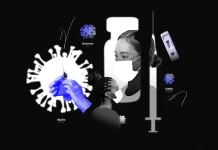
In a world where physical health is openly discussed, mental health still struggles to break free from the chains of stigma. For years, societal taboos have shrouded mental health conversations in silence and shame. But it’s high time we break free from these barriers and create a judgment-free society where discussing mental health is not only accepted but encouraged.
The Weight of Stigma
Stigma, or the negative attitudes and beliefs that mark those with mental health conditions as different or less worthy, can have a devastating impact. It prevents individuals from seeking help when they need it, leading to untreated conditions, and sometimes tragic outcomes.
Shattering Misconceptions
The first step in breaking the stigma is to shatter misconceptions about mental health. It’s crucial to understand that mental health conditions are not a sign of weakness, a character flaw, or something that can be easily controlled. They are real medical conditions, often influenced by biological, psychological, and environmental factors.
Talking Openly About Mental Health
To foster a judgment-free society, open conversations about mental health should become as common as talking about physical health. Here’s how:
- Share Your Story: If you’ve experienced a mental health challenge, sharing your story can be empowering. It lets others know they’re not alone.
- Listen Without Judgment: When someone opens up about their mental health, be a good listener without offering unsolicited advice. Sometimes, people just need someone to talk to.
- Educate Yourself: Learn about different mental health conditions. Understanding the complexities helps break down stereotypes.
- Language Matters: Avoid derogatory terms or labels when discussing mental health. The words we use can either perpetuate stigma or break it down.
- Supportive Communities: Join or create supportive communities where mental health discussions are encouraged. These can be in person or online.
- Media Influence: Encourage responsible and sensitive portrayals of mental health in the media. Accurate depictions can reduce stereotypes.
The Power of Empathy
Empathy is a cornerstone of creating a judgment-free society. It means recognizing the emotions in others and showing that you care. For someone experiencing a mental health challenge, having someone genuinely listen and show empathy can make a world of difference.
Seeking Professional Help Is a Sign of Strength
In our judgment-free society, seeking professional help for mental health should be viewed as a sign of strength, not weakness. It’s no different from seeing a doctor for a physical ailment. Mental health professionals are experts in their field, and their guidance can lead to recovery and improved well-being.
Changing Workplace Culture
Creating a judgment-free society extends to the workplace as well. Employers should foster a work environment where employees can talk openly about their mental health without fear of reprisal. This includes offering mental health resources and support.
Conclusion: Breaking the Silence
Breaking the stigma surrounding mental health requires collective effort. It’s a journey from ignorance to understanding, from judgment to empathy. When we openly discuss mental health and offer support to those who need it, we pave the way for a society where everyone feels valued, understood, and accepted, regardless of their mental health condition. Let’s break the silence, encourage open conversations, and create a world where mental health is a topic as ordinary as the weather, free from judgment and stigma.



